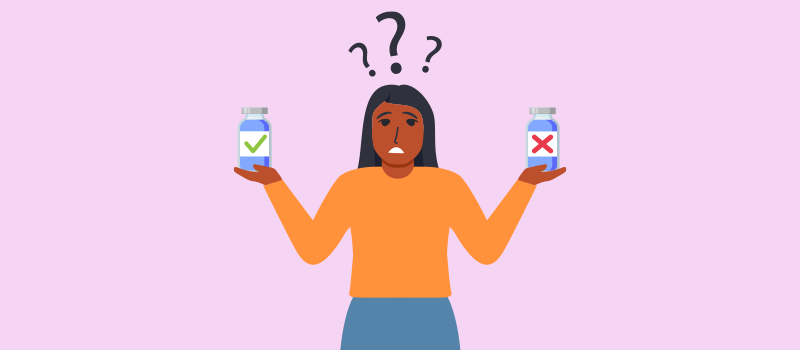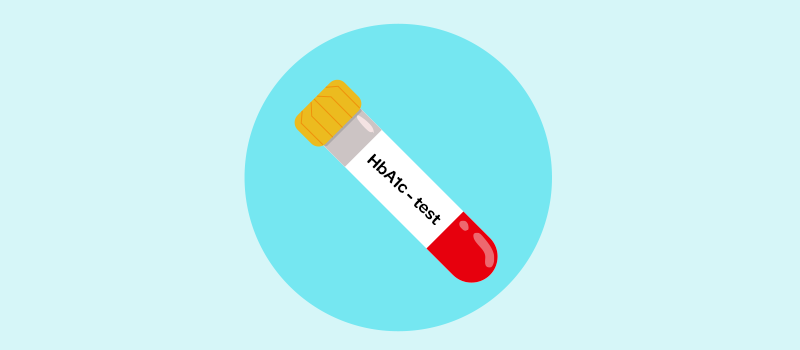What’s the Buzz
The Bee Healthy Blog
Metformin vs. Berberine: Similarities and Differences

Metformin and berberine are used to lower blood glucose and increase insulin sensitivity. However, there are several key differences between the two; notably, that metformin is an FDA-approved medication while berberine is a natural supplement. Please keep reading to learn more about berberine vs. metformin.
What is metformin?
Metformin is an oral prescription drug used to treat type 2 diabetes mellitus. It belongs to a group of medications called biguanides. Doctors typically offer metformin as the first drug for type 2 diabetes before starting insulin treatment. Metformin decreases blood glucose levels by:
- Reducing insulin resistance, thus, the body absorbs sugar more effectively
- Decreasing the absorption of glucose in the intestine
- Increasing glucose uptake in adipose tissue and skeletal muscle
Similar to other diabetes medicines, taking metformin can cause hypoglycemia (low blood sugar levels); however, metformin is still considered a safe and effective medication to treat type 2 diabetes.
What is berberine?
Berberine is an herb extracted from several different plants, specifically shrubs called Berberis. Berberine originates from an ancient Chinese herb called Coptis Chinensis French. The alkaloid chemical structures of berberine set it apart from the other hypoglycemic agents such as biguanides and sulfonylureas. Berberine is used in traditional Chinese medicine to treat various ailments. Because of its yellow color, it is also frequently used as a dye.
Studies have shown that berberine is beneficial for people with a range of health problems, including diabetes and cardiovascular disease. It is also used for metabolic syndrome such as prediabetes, weight loss, dyslipidemia due to its lipid-lowering effect, polycystic ovary syndrome, and other health conditions.
The exact mechanism of berberine on glucose metabolism is still being investigated. The good news is that in both in vivo and in vitro studies, berberine promoted an insulin-sensitizing effect while reducing insulin resistance.
Regarding berberine’s lipid-lowering effect, there is evidence that berberine shunts the body's lipid production through the AMP-activated protein kinase.
What is metformin similar to?
Metformin, the prescription medicine for type 2 diabetes, may have similar features to berberine supplements regarding glucose metabolism.
It is worth noting that metformin is an FDA-approved medication for the treatment of diabetes and certain medical conditions like weight loss. Berberine is a supplement and is not regulated by the FDA. This means that berberine exhibited beneficial effects in clinical studies with a modest number of participants. Similar to other supplements on the market, there is no strong scientific evidence that berberine is safe and effective for diabetes care.
Healthcare providers can offer alternatives to metformin that are FDA-approved oral prescription medications to treat diabetes. Examples include glipizide (Glucotrol XL), glimepiride (Amaryl), glyburide (Micronase), pioglitazone (Actos), sitagliptin (Januvia), and others.
Is berberine effective in lowering blood glucose levels?
Berberine has been shown to regulate both glucose metabolism and lipid metabolism.
One study looked at adults with a new diagnosis of type 2 diabetes. The study participants were randomly assigned to treatment with berberine vs. metformin 0.5 grams three times a day. The treatment was continued for 3 months. Both berberine and metformin groups had a similar reduction in blood glucose. Taking Berberine led to a significant decrease in hemoglobin A1c from 9.5 to 7.5, fasting blood glucose from 10.6 to 6.9, and postprandial blood glucose from 19.8 to 11.1. Additionally, berberine also led to a decrease in triglycerides from 1.13 to 0.89. Triglycerides, along with LDL cholesterol, are a type of bad cholesterol.
In another study, adults with poorly controlled diabetes were treated with berberine for a 3-month period. Berberine helped to lower both fasting and postprandial blood glucose levels as well as HbA1c from 8.1 to 7.3. It also led to a decrease in fasting insulin by around 28%. Total cholesterol and LDL cholesterol were also significantly lowered. Approximately one-third of the patients had temporary gastrointestinal side effects. Berberine supplementation did not cause changes in kidney or liver function tests in patients. The conclusion was that berberine is a powerful oral blood sugar lowering agent. It also has beneficial effects on fasting insulin and lipid metabolism.
How long does it take for berberine to lower A1c?
Most studies have looked at berberine activity over 90 days. So, we can assume that the effects of berberine take around 3 months to be evident. However, some people taking berberine report a reduction in blood sugar levels within the first month of taking berberine.
In contrast, metformin works much faster. It usually takes 4-5 days to get the full benefits of metformin.
Should I take berberine instead of metformin?
Berberine is sometimes called a metformin substitute or metformin alternative. Studies have shown that berberine may be used to replace metformin, at least partially.
However, you should not stop taking metformin without talking to your doctor first. If you are not on metformin, it is still a good idea to talk to your doctor before starting a supplement like berberine.
How much berberine to take for diabetes?
The usual starting dose of berberine for blood sugar control is 500 mg per day. The supplement should be taken with dinner or at bedtime. Your healthcare provider may increase your berberine dosage to 500 mg twice daily with meals. Sometimes, doctors advise taking berberine 500 mg three times a day. Absorption of berberine in the gastrointestinal tract can be enhanced by taking milk thistle. You can talk to your doctor about taking berberine and milk thistle together.
Can you take berberine long-term?
Studies have shown that taking berberine for 12 months or longer is safe and well tolerated. Similarly, metformin is safe and well-tolerated with long-term use.
What are the side effects of metformin and berberine?
Metformin can cause side effects such as gas, bloating, nausea, diarrhea, abdominal discomfort, and loss of appetite.
Berberine side effects include flatulence, abdominal pain, diarrhea, and constipation.
Therefore, both metformin and berberine cause gastrointestinal side effects. In general, side effects caused by berberine tend to be less severe.
Can you take both berberine and metformin together?
Research has shown that a combination of berberine and metformin can enhance the effects of these two medications on blood sugar. Also, berberine can make it easier to tolerate metformin with fewer side effects. Therefore, if your doctor says it is okay to take both berberine-metformin, you can go ahead and do so.
References:












SOCIAL